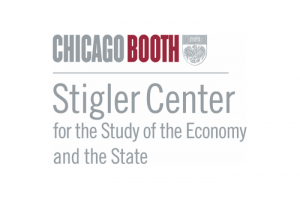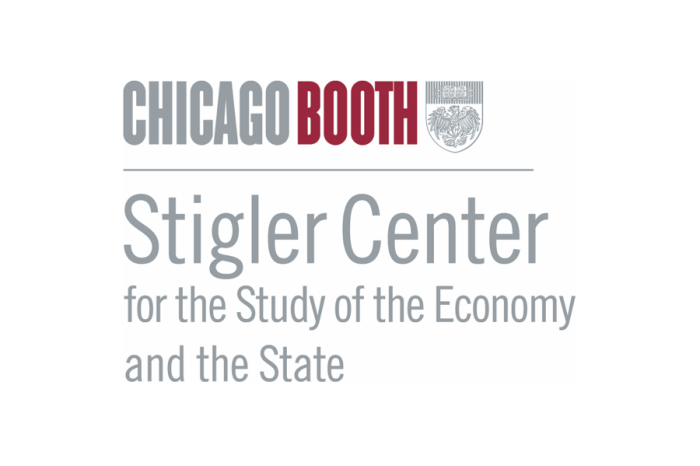The Stigler Center presents its policy suggestions on how to address the political and economic issues raised by the market power of tech platforms like Google and Facebook. The result of a year-long, multidisciplinary research, the recommendations are aimed at promoting competition, protecting consumers, and defending democracies while maintaining the benefits of digital platforms.

Spurred by public animosity toward Big Tech and growing demand for increased scrutiny of digital platforms, federal agencies and state attorneys general have launched a succession of antitrust investigations into Google and Facebook in the past year.
But as government scrutiny of the large platforms intensifies, the question of how to regulate tech monopolies remains open. As Fiona Scott Morton wrote in May, “When it comes to digital platforms, antitrust enforcement is rife with difficulties,” partly due to network effects and economies of scale, and partly because antitrust enforcers today lack the tools necessary to address some of the challenges presented by platforms like Google and Facebook.
These difficulties were apparent in the Stigler Center’s annual antitrust conference in 2018, which was dedicated to the issue of concentration and digital platforms. That conference brought together a remarkable combination of economists, lawyers, journalists, venture capitalists, and data scientists. While the conference debates were characterized by wide disagreements over how Big Tech should be regulated, the consensus was that antitrust in its current form is not well-equipped to take on this challenge and that significant reforms are needed.
The result of this consensus was the Stigler Center’s Committee for the Study of Digital Platforms: a year-long, multidisciplinary inquiry into how the political and economic issues raised by the market power of tech platforms like Google and Facebook should be addressed. After presenting and discussing the initial conclusions during the Stigler Center’s 2019 antitrust conference, we are now pleased to present the final report.
The Committee on Digital Platforms’s 336-page full report is the result of 12 months of research and debate among more than 30 leading scholars and seeks to address what its authors describe as a “concentration of economic, media, data, and persuasion and political power [that] is incredibly dangerous for our democracies.” It is comprised of four separate reports written by each of the four subcommittees: Economy and Market Structure, Privacy and Data Protection, the Media, and the Political System.
The report includes several policy recommendations that, put together, offer a comprehensive, cohesive vision of how tech monopolies can be reined in. The recommendations, said Luigi Zingales, faculty director of the Stigler Center and one of the editors of this blog, “are aimed at maintaining the benefits of digital platforms while promoting competition, protecting consumers, and defending democracies.”
The report includes the following set of policy recommendations:
- Tighten many US antitrust rules and impose interoperability among digital platforms, similar to the way the US forced interoperability among phone companies, as a way of weakening network effects.
- Establish a new digital regulatory agency, a Digital Authority capable of overseeing all aspects of digital platforms, which would be tasked with “creating general conditions conducive to competition.” To minimize the risk that the new regulatory authority will be captured by industry, the DA would operate as a subdivision of the FTC, at least initially. It would collect data on digital transactions and interactions, set up rules that allow for data portability and interoperability, promote open standards, and be able to conduct merger reviews in parallel with the Justice Department.
- In the meantime, Congress should empower the FTC to have access to digital platforms’ internal databases and studies, allow it to perform its own independent research on how platforms impact different areas of our society, and moderate independent researchers’ access to these databases.
- Change the threshold for merger review, basing it on transaction value or other criteria that allow regulators to scrutinize transactions between digital platforms and startups.
- Extend campaign disclosure obligations to specifically target digital platforms, including relationships with politicians, academic funding, and the intentional promotion or demotion of content related to political figures.
- Adopt pro-consumer default rules, so consumers know what privacy disclosures they agree to when they click, ‘I agree.’” Also, discourage so-called “dark patterns” or user interfaces that can confuse consumers or manipulate them.
- Facebook and Google have vigorously asserted that they are not publishers, relying on Section 230 of the Communications Decency Act of 1996. Originally conceived for early internet providers, Section 230 has since functioned as a major subsidy to digital platforms. If digital platforms want to preserve the protection of this law, they should take clear measures to prioritize content, rather than maximize advertising revenue.
- Impose an additional fiduciary duty on the boards of monopolies, specifically a fiduciary duty towards society.
- Change the criteria for merger rules in the news media market, from consumer welfare to citizen welfare. Regulators will have to asses what a proposed merger will do to the plurality of the news market, rather than focus solely on the benefits or harms to the consumers of the merging entities.
- Introduce public funding of news organizations that produce quality investigative and democratic journalism through a voucher system designed to promote competition and entry and limit the entrenchment of incumbent large news media outlets.
Read the full report here.
The ProMarket blog is dedicated to discussing how competition tends to be subverted by special interests. The posts represent the opinions of their writers, not necessarily those of the University of Chicago, the Booth School of Business, or its faculty. For more information, please visit ProMarket Blog Policy.






